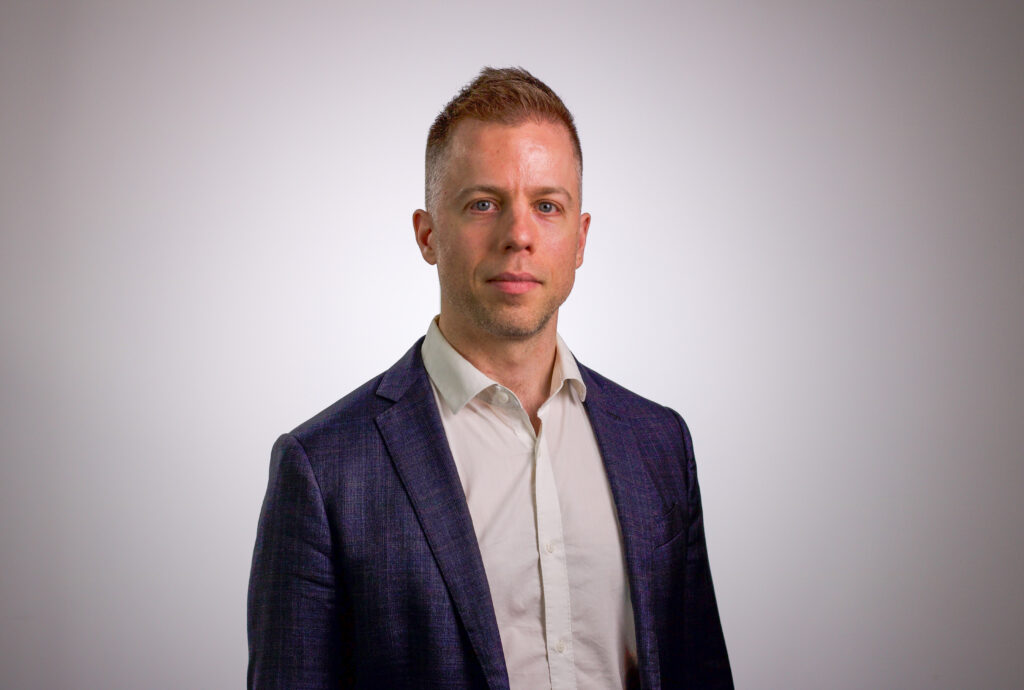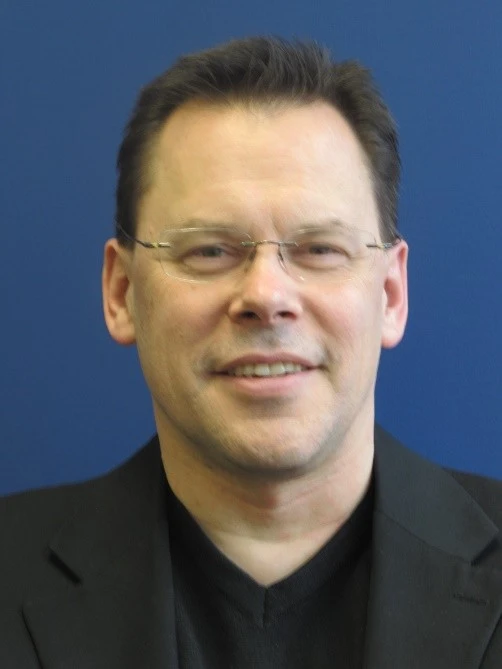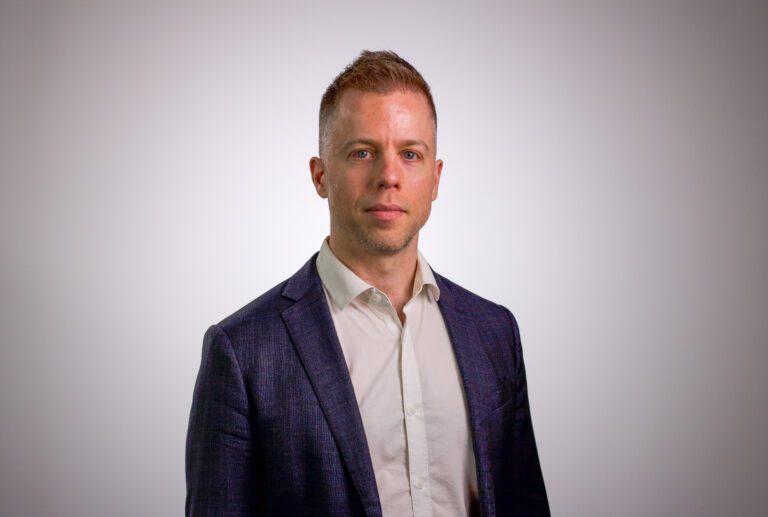Guided by Passion
Driven by the desire to uncover the key to success in Japan, we continued our quest to enrich our Quebec-Japan Business Scrolls. This time, our journey brought us to Benoît Hardy-Chartrand, a lecturer at Temple University Japan. After serving as an assistant professor in the Faculty of Political Science and International Affairs since 2018, he became a full-time member of the faculty in January 2024.
We met him on a bright autumn afternoon in Tokyo, at the heart of Temple’s bustling campus. In this vibrating agora, the students’ enthusiasm blended with the excitement of knowledge and the beginnings of friendships that, for some, will last a lifetime. When Mr. Hardy-Chartrand arrived, he radiated the same vibrant energy — a man fully immersed in his element, passionate about sharing ideas and thriving in a stimulating environment.
Looking for a first experience in Japan ? The United Nations University could be the right place to go.
Benoît Hardy-Chartrand began his Japanese journey in 2012, through an internship and a fellowship at the United Nations University (UNU) in Tokyo. The opportunity came with challenges, but thanks to the guidance of a professor he knew, he was introduced to a mentor at UNU who to took him under his wing. That year-long immersion gave him his first real taste of life in Japan while helping him build a strong professional network.
“The United Nations University is truly a great gateway to Japan. I know many people who launched their careers in Japan thanks to that program. Some continued within the UN, while others found work in their fields in Japan,” he explained.
For him, the UNU program is an ideal springboard for those seeking to establish themselves in Japan and evolve in a multicultural environment. One of the program’s key strengths is to give access to Japan even for those who have not yet settled there or who lack the right contacts to find employment on the ground. “…you can join the United Nations without necessarily being based in Japan beforehand,” Benoît explains.
To get more information about the Junior Fellows Internship Program, please check the official website: UNU Junior Fellows Program.
You may need more than one attempt
As the saying goes, building a life in Japan is not a sprint, it’s a marathon. Depending on your field, your personality, and the economic realities at the time you get there, you may encounter setbacks that force you to take a step back before moving forward again. And if that happens, don’t be discouraged. That was the case for Mr. Hardy-Chartrand, at the end of his first year in Japan. With no opportunities available in the field that interested him, he made his mind to return to Canada.
Some people choose to stay in Japan at all costs, even if it means taking a job that doesn’t truly suit them. But there is another option worth considering: as Mr. Hardy-Chartrand did, you can return to Canada (or your home country) to pursue work that matches your interest, while “…still maintaining a connection with Japan”. In his case, that decision paid off. Back in Canada, he became a research lead on Asia-Pacific geopolitical issues at a think tank in Waterloo, Ontario. In this role, he contributed to more than 270 media appearances, delivered numerous lectures, and organized international events on the subject.
Should you have a job waiting in Japan before moving there?
His work in Canada was rewarding, but when Japan calls, nothing else can satisfy the pull of adventure in the Land of the Rising Sun. Just nine days after finishing his contract in Waterloo, Benoît Hardy-Chartrand eventually decided to return to Japan. It was a risky move, as he returned without a job lined up. But it was a calculated risk. “My background as an associate in the Raoul-Dandurand Chair and a researcher in a think tank, gave me visibility in my field. It allowed me to build a name for myself, to speak in the media, and publish a number of articles. » , Hardy-Chartrand explains.
Of course, moving to Japan without an employment contract is not for everyone — nor is it generally advisable. But for those who take that path, be sure to arrive with relevant work experience in your field of interest. It is important to have a plan in your mind and be sufficiently prepared to carry out your plan once you get there. After returning to Japan in December 2017, he secured a position as an assistant professor at Temple University Japan by May 2018, a role he continues to hold today.
Founded in 1982, Temple University Japan (TUJ) is the oldest American university in Japan. With a distinctly international character, it welcomes about 2,500 students. Located in Tokyo, TUJ prepares its students to evolve in a globalized world, offering programs aligned with the academic standards of Temple University in the United States.
Is there a typical path to successfully settling in Japan?
All roads lead to… Tokyo!
For Benoît Hardy-Chartrand, the taste for travel and adventure emerged early. Growing up in a family were mobility was part of everyday life, he had the privilege of exploring the world from a young age. His grandfather, a diplomat, exposed him very soon to diverse cultures and an global perspective that would shape his future. By his teenage years, Hardy-Chartrand already knew he wanted to pursue an international career, though his first ambition had nothing to do with business, politics, or academia. His first dream was to become an international rock star.
Although music remained a passion (and even brought him some local success), it was research that ultimately became his gateway abroad. His work in international affairs opened doors to explore various opportunities in Asia, and eventually led him to settle permanently in Japan. His story illustrates that success in a country like Japan does not depend on a single formula or a fixed career path. What matters most is curiosity, adaptability, and the willingness to explore different avenues until finding the one that aligns with your aspirations.
Establishing yourself in Japan, then, doesn’t necessarily mean following a traditional path. Whether you come from academia, business, or even music, what matters most is a clear vision of your goals and the determination to seize opportunities as they come. As Benoît Hardy-Chartrand’s unconventional journey demonstrates, all roads can indeed lead to Tokyo, provided you’re ready to embrace the journey with passion, and an open mind.
What kinds of interests help build a life in Japan?
Beyond popular cultural exports like manga or anime, having a genuine interest for Japan provides a strong foundation for long-term success. A deeper fascination for Japanese culture, history and society helps better understand local dynamics while adapting more smoothly to life on the ground. The desire to discover a country as unique as Japan, with its traditions and distinct features, is a powerful motivation for anyone seeking to build a career and a life there.
As Mr. Hardy-Chartrand’s case shows, an interest in the region’s political and economic issues can be invaluable, particularly for a career in international affairs or trade.
Temple University, with its campus in Japan, offers an ideal environment for students and professionals seeking to immerse themselves in the culture while benefiting from an academic and professional setting that fosters their growth.
What strikes you most in Japan?
According to Mr. Hardy-Chartrand, trains in Japan are remarkably calm. Unlike in other countries where conversations and phone calls are commonplace, here passengers remain silent, absorbed in their phones or resting during the ride. This respect for shared spaces is deeply rooted in Japanese culture and reflects a collective effort to avoid disturbing others.
Precision and attention to detail also stand out in daily life, whether in the immaculate public spaces, customer service, or the workplace. Japanese companies enforce high standards and a clearly defined hierarchy, which can be challenging for those coming from a more flexible environment. “In Japan, everything is highly structured, and rules are followed to the letter. This discipline is impressive, but it requires time to adapt,” he notes.
Adaptability: the key to a successful life in Japan
Adapting to Japan is a demanding process that requires understanding and acceptance of its cultural and structural particularities. According to Mr. Hardy-Chartrand: “Language is often the first major challenge. Japanese is complex and nuanced. It takes time to master it well enough to handle daily life with confidence.” Without a solid foundation in Japanese, newcomers may find themselves dependent on others for administrative tasks, professional interactions, or basic social integration.
Beyond language, the rigidity of rules and procedures can also be a shock for those used to greater flexibility. “Here, everything is structured and must follow an established framework, whether it’s in administrative procedures or business processes. This rigor can sometimes feel lacking in pragmatism, especially for those coming from the West, where adaptability and more flexible decision-making are often valued.” However, understanding and accepting this discipline is crucial for anyone who wants to integrate successfully. Building a sustainable life in Japan lies in adapting to these norms while finding one’s own rhythm.
How Japan has changed in recent years?
According to Mr. Hardy-Chartrand: “Japan has been increasingly internationalizing over the past 12 years. It’s still different and insular, but efforts are being made.” For a long time, it was extremely rare to converse with Japanese people in English. Nowadays, it is easier. He adds: “The government has recognized the challenges, and we can see the efforts to improve English education for Japanese people. It’s therefore easier to do business with the locals.”
The professor at Temple University Japan also points out that the demographic challenge Japan has been facing for several years is pushing the country to become more open to foreigners. Japan is more and more willing to grant visas to those who invest in the country, as well as permanent residency.
Stereotypes about Japan that turned out to be false
When asked this question, Mr. Hardy-Chartrand doesn’t hesitate: “The image of Japan is hyper-futuristic. People often say Japan is a mix of old and new, but to me, it is more old than new.” He explains this with examples of daily customs that feel outdated. “Bureaucratic paperwork” remains very common, with many processes still done on paper. Much to the surprise of many Canadians, banks in Japan still rely heavily on fax machines. Despite some progress and technological advances, “…it seems to take time to bring Japan into the 21st century in certain areas,” he adds.
How do you prepare for life in Japan?
“Preparing to live in Japan starts first and foremost with learning the language,” says Mr. Hardy-Chartrand. Unlike in other Asian countries where English may be sufficient in certain contexts, in Japan, mastering Japanese is essential for independence. Without this skill, navigating daily life becomes a challenge—whether dealing with administrative procedures, understanding workplace rules, or simply integrating socially. Not speaking Japanese also means depending constantly on others, which can slow adaptation and limit both personal and professional opportunities.
Beyond language, it is equally crucial to understand local customs, particularly in the business world. “Having someone you trust on the ground, someone familiar with the culture and ways of doing things, can help you avoid many mistakes. Even with a good command of Japanese, overlooking the subtleties of professional interactions can lead to misunderstandings or missteps.” Social codes in Japan are very precise, and respecting norms— whether related to hierarchy, politeness or business protocol, plays a key role in building a successful and sustainable life in the country.






